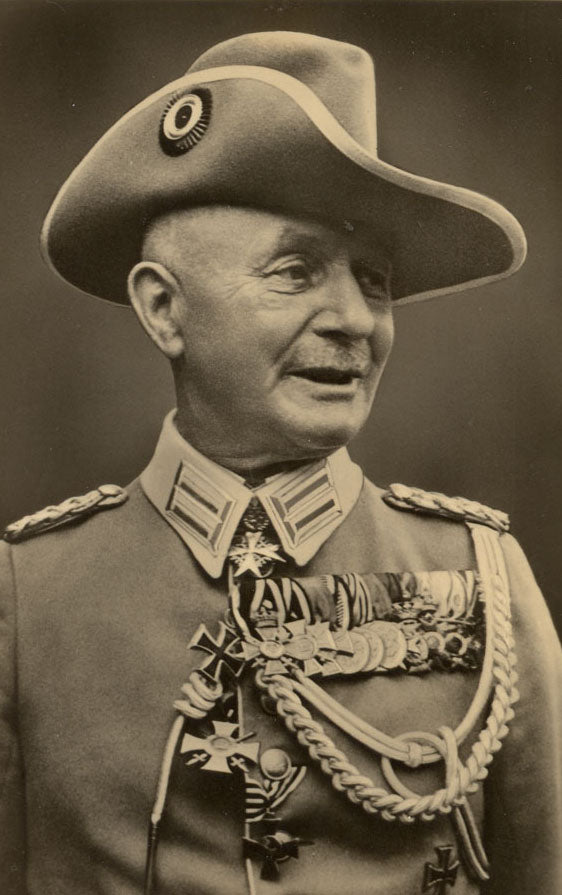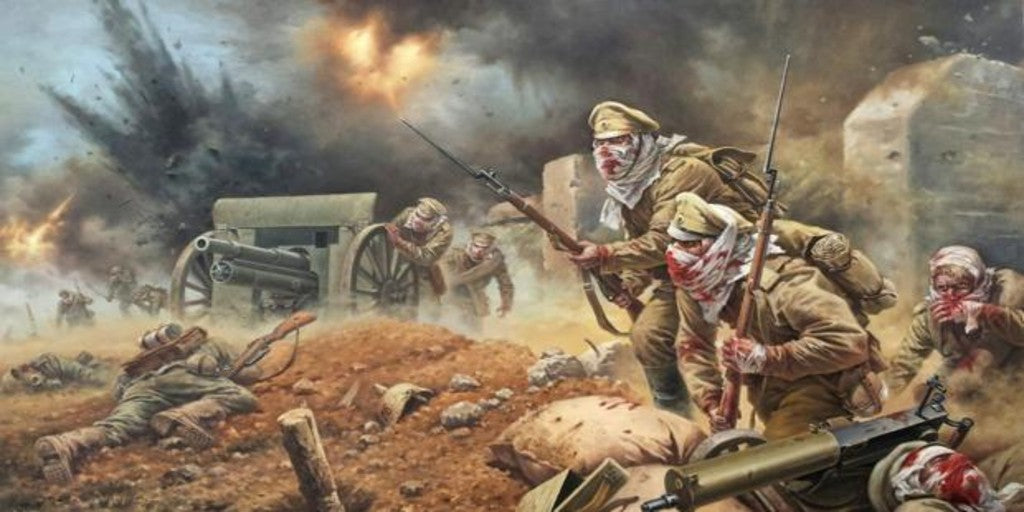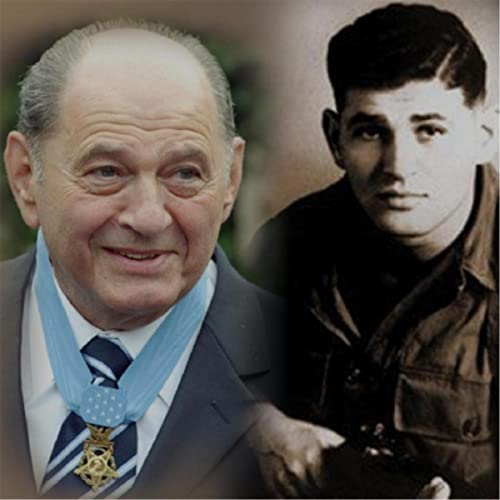
Warrior Wednesday: Paul Emil Von Lettow-Vorbeck "The Lion Of Africa"

I’m gonna educate all you dudes about Imperial Germany’s undefeated battlefield Commander of the East African Campaign. A Warrior-General who was routinely outnumbered by British, Portuguese, and Belgian forces as much as 18:1. A man who was respected by his enemies. A man known to all as the Lion of Africa. A man who told Hitler to go f*ck himself. This is the story of General der Infanterie (Literally General of the Infantry) Paul Emil von Lettow-Vorbeck. Let’s f*cking go.
Paul Emil von Lettow-Vorbeck was born into the minor nobility of Imperial Germany in 1870. He came from a long line of professional soldiers. His Father was an Army officer who was stationed in the Prussian Rhine Province. Vorbeck was educated in some of the best boarding schools in Berlin and joined the corps of cadets at Potsdam. In 1890, he was commissioned into the Imperial German Army and was assigned to the German General Staff. Unlike many of his compatriots, he wasn’t just some spoiled rich aristocrat who bought a commission in order to expand his personal title. He loved the Military and the discipline it brought along. He lived for this shit.
In 1900, Vorbeck was posted to China to quell the Boxer Rebellion. He didn't like fighting against guerrillas and saw how fighting an asymmetrical force broke down military discipline. In 1904, he was assigned to German South-West Africa (now Namibia) during the Namaqua & Herero insurrection. His experiences there earned him two things: Shrapnel in one of his eyes, and a first rate education on how die-hard guerillas can f*ck with well-equipped European soldiers pretty damn effectively. These are lessons he took to heart. This shit will play a YUGE factor in the type of battlefield commander he’d evolve into years later.
In October 1913, the Imperial German army promoted him to Lieutenant Colonel and appointed him to command the German colonial forces known as the Schutztruppe (protectorate force) In German East Africa (now Tanzania). He had about 250 German Infantry officers and ~2,600 native tribesmen who filled the enlisted ranks. They were known as the Askari. The Askari who served in the German military were recruited from tough-as-nails Sudanese mercenaries and warriors from the disciplined Wahehe and Angoni tribes. Both these tribes were known for their fearsome martial prowess. The Germans chose well and paid them twice as much as their British or Belgian counterparts paid their local soldiers.

German Askari Troops
Well in 1914 it was pretty f*cking obvious that the world was about to explode in a global scale of violence never witnessed before. So in August Lettow-Vorbeck immediately started prepping for the idea that he would have to fight the entire British colonial army in Kenya and Uganda with the few men he had under his command. German East Africa’s Governor, Heinrich Schnee, attempted to achieve neutrality for German East Africa, but Lettow-Vorbeck looked at him and said “You can miss me with that g*y shit.” and ignored a direct order from the Governor not to mobilize for war, and began training his men in how to fight a badass guerilla war against impossible odds.
These were the very same lessons he learned on the battlefields of China and Africa ten years prior. Vorbeck understood that the African theater of war would be the side-show to the main efforts in Europe. So his plan was to be such a pain in the d*ck for his enemies that men and war material would be needed to be diverted from Europe to fight him in Africa.
Several months later in November of 1914, The British landed 8,000 troops in the port of Tanga at the Battle of...well Tanga.. Vorbeck only had about 1,000 Askari and Germans to hold back this tide of British manpower. Over the next 4 days of battle he and his warriors buttf*cked British morale with an unlubed African warrior spear. Vorbeck and his men withdrew to the jungles surrounding Tanga, and started spreading out a torrential downpour of hot lead into the landing vessel. The British force reconsolidated and charged into the jungle after him, but Vorbeck’s men did as he trained them: they scattered, broke apart into small, mobile units of about 100 men each, and picked apart the disorganized British units one by one as they tried to make their way through the jungle.This sounds eerily similar to the basis of the first Predator movie by the way but I digress. After stopping the British offensive, the Germans pushed back and practically shoved them back to their boats and forced them to sail away. The British book "Official History of the War" considers the British decisions at the Battle of Tanga as “one of the most notable failures in British military history.”
The Vorbeck suffered 15 Germans, 55 Askari KIAs and about 75 WIAs. The British on the other hand suffered 360 KIAs, 487 WIAs, 148 MIAs. More importantly, when the British forces were ordered to retreat they had left an insane amount of supplies for Vorbeck’s Askari to capture. They left thousands of bolt action rifles, over 600,000 rounds of ammunition, clothing, medical supplies, food, commo equipment, and 16 f*cking machine guns.
Oh yeah, I forgot to mention that many of Vorbeck’s Askari were armed with spears, antiquated muskets or obsolete single shot breech loading rifles and even set up trip wires to the beehives of psychotic African honey bees. But thanks to the British the were able to score new rifles and much needed supplies.
Vorbeck then moved north into Kenya, where he awesomely became the first and only German military commander in WWI history to ever launch an invasion into British territory. Charging insanely into combat at the head of his force of hardcore African infantrymen, Vorbeck moved quickly through the Savannah and jungles, brutalized British train tracks Kenya, completely destroyed communication hubs near Mount Kilimanjaro, and destroyed bridges near Lake Victoria with a little more than some captured explosives and and his insurmountable need to keep dick-punching British colonial forces. His men even captured crates of Enfields and over a million rounds of ammunition in the Kenyan city of Taveta. He was an unstoppable whirlwind of destruction.
Lettow-Vorbeck also wrecked 100-mile stretch of the Uganda Railway by blowing up trains and bridges, torching train stations to the ground, and otherwise running around and destroying anything and everything related to the British, Belgian or Portuguese. His guerilla campaign was working. In 1915, He recruited new personnel and expanded to its eventual size of some 14,000 soldiers, most of them Askari. His Army would never grow past this amount. In comparison, the allies forces peaked at 250,000 soldiers in the African Campaign. Vorbeck's command of the Swahili language and his fair treatment of his men (hint: He commissioned black soldiers too) earned the respect and admiration of his African soldiers who were willing to fight and die for him in the face of overwhelming numbers.
In 1915 he received the ONLY German reinforcements he’d receive throughout the war. The craziest part is that the reinforcements weren’t even there for him. The German Navy’s heavy cruiser Konigsberg sank in the Rufiji Delta and the marooned Seamen and Kriegsmarines agreed to join Vorbeck’s raiders since they really didn’t have anything else to do. The ever resourceful Prussian dick-smasher had the naval crew hoist out the ship’s cannons. They raised four 105mm guns and His Askari forged wheels and carriages, mounted the guns on them, and augmented his forces with a battery of cannons that were primarily designed to sink fucking Capital class Warships. His guerilla force had the largest and most powerful land based artillery pieces throughout the entirety of the African Theater of WWI.

One of the Konigsberg cannon retrofitted as land artillery
In March 1916, the British under General J. C. Smuts (Remember this name, it’ll come up again later) and the Belgians under General Charles Tombeur launched a formidable offensive with 45,000 men near Tabora. Smuts was no stranger to bush warfare himself. Lettow-Vorbeck patiently used the climate and terrain as his allies, while his troops fought the British on their terms and to their advantage. The British, however, kept adding more troops and forcing Lettow-Vorbeck to yield territory, but no matter how much land they captured, Vorbeck and his raiders were always one step ahead, burning and blowing shit up as they ran amok.
At the Battle of Mahiwa in 1917, a force of English, Belgians, and Portuguese who outnumbered him almost 5:1 tried to gangbang his small army, but they didn’t realize that Vorbeck literally didn’t know how to fucking lose. Vorbeck personally scouted the battlefield on a bicycle, positioned his unit’s machine guns where they’d have the best fields of fire, and not only turned stopped an offensive from 5,000 enemy soldiers, but somehow flanked the attackers, and launched an epic Askari bayonet charge, In intense hand-to-hand life or death combat, Lettow-Vorbeck’s men overcame the massive force, dealing 3000 casualties at a cost of 519 men. He even captured the Allies camp, which, according to him, included:
“so much wine and schnapps that even with the best will in the world it was impossible to consume it all.”
However, his men expended over 850,000 rounds during that battle and his ammunition reserves were so low that during the battle many of his Askari were forced to use their old blackpowder 1871 rifles. This wasn’t good. So Vorbeck did what he was supremely good at: Raiding other countries’ military depots. This time he decided to dick down the unprepared Portuguese. He straight cucked them and replaced his black powder weapons for the second time with modern rifles, and captured a medical ship for desperately needed medical supplies. For almost a year Lettow-Vorbeck's men had lived off the land, and whatever provisions they captured from the British and Portuguese; by the end of the War, they still had more ammunition than they could carry and were forced to bury it in caches all across Eastern Africa.
On the morning of 14 November 1918 , A message from the allied General Jacob van Deventer, informed him of the armistice. Vorbeck agreed to a cease-fire with his British enemies. He was instructed by the British to march north to Mbala to surrender his undefeated army. From his Army of 14,000 men made up of 250 German officers/NCOs and over 13,000 Askari, The survivors who marched to Mbala consisted of just thirty German officers, 125 German non-commissioned officers and 1,168 Askari. His men fought against a numerically superior force for over 4 years straight while constantly on the run. He was never defeated in battle, and only gave up once the war was declared over.
Vorbeck returned home to Germany in early March 1919 as a War Hero. On a black charger he led the veterans of the Schutztruppe on parade through the Brandenburg Gates. Instead of wearing stuffy ostentatious dress uniforms He had his men march in in their tattered combat uniforms so the country could see the sacrifices they've made.
After the Great War, he led troops to Hamburg to beat down a Communist uprising in 1919, and constantly opposed the politics of a certain young asshole named Adolph Hitler. In 1929 Vorbeck accepted an invitation to London, where he met his rival General J.C Smuts face to face for the first time. The two grizzled warriors formed a lasting friendship that only ended in 1950 with Smut’s death.
After Hitler seized power as Chancellor, He offered Vorbeck a position as a foreign ambassador. Paul von Lettow-Vorbeck told Hitler to fuck off. Years later during the 1960s, Author Charles Miller asked a witness, "I understand that von Lettow-Vorbeck told Hitler to go fuck himself." The man responded, "That's right, except that he didn't put it that politely." Vorbeck was denied his pension (which was a dick move Adolph) , had his home searched, and was kept under constant surveillance as a potential “enemy of the people". During WWII Vorbeck lost everything. Allied bombs blew up his home, Adolph took his pension, and Vorbeck's two son were killed in action serving in the Wehrmacht
In 1953, he visited his former home, East Africa, where he was heartily welcomed by surviving Askari, who greeted him with their old marching song "Heia Safari". In 1964, eleven days before his 94th birthday, Paul von Lettow-Vorbeck died in Hamburg. That very same year, the West German parliament voted to give backpay to all surviving German Askari of WWI. A temporary cashier's office was set up near Lake Victoria. Of the 350 old veterans who gathered, only a handful could produce the paper certificates that Lettow-Vorbeck had given them in 1918 of their official discharge from the German Army. Others presented pieces of their old uniforms, or war wounds as proof of service. The German banker who had brought the money had an idea to prove their service in the Imperial German Army: Each man was asked to step forward, was handed a broom and was ordered in German to perform the Manual of Arms for a rifle.
Not a single man failed.
And that, my readers, is the story of one of Germany’s most successful battlefield commanders, a man respected and feared by his enemies, loved by his men, and fearless in the face of battle.
The Lion of Africa.



Leave a comment
This site is protected by hCaptcha and the hCaptcha Privacy Policy and Terms of Service apply.